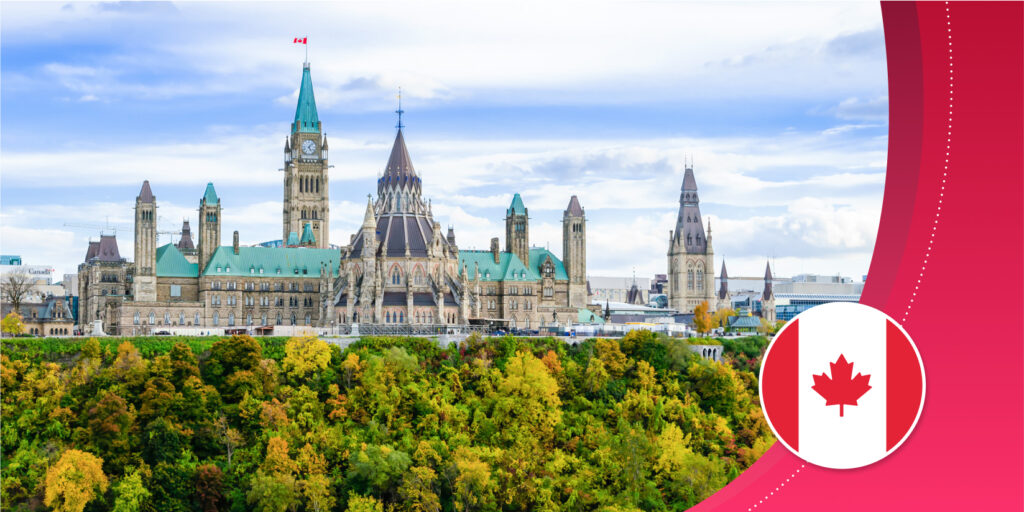Earlier this month, Immigration, Refugees and Citizenship Canada (IRCC) announced two new pilot programs for rural and Francophone minority communities in Canada. Both the Rural Community Immigration Pilot and Francophone Community Immigration Pilot programs will launch in Fall 2024, with specific program start dates to be announced soon. If you’re looking for educational opportunities in Canada, this could be a great way to put what you learned in your study program to work. Read on for a few more details!
These programs are modeled on the successful Rural and Northern Immigration Pilot (RNIP). The RNIP encouraged skilled trades workers and international student graduates to settle in some of Canada’s smaller and more northern communities, and work in sectors with labour gaps. RNIP’s success is considerable: between its launch in 2019 and the end of 2023, it helped over 4,500 people to get Canadian permanent residence and live in one of the 15 participating communities. Due to its ongoing success, the same government announcement noted that RNIP will become a permanent program.
Curious about becoming an international student in Canada? Find your study program match from programs at over 100 Canadian institutions on the free ApplyBoard platform.

What is the Rural Community Immigration Pilot?
The Rural Community Immigration Pilot will be an exciting permanent residence pathway for people who can work in areas with critical labour shortages. While many details about the program are yet to be announced, it is expected to launch in Fall 2024.
The list of participating communities is currently unavailable, as the selection process hasn’t started yet (as of March 26). That said, it’s likely that, like RNIP, communities will be selected from different provinces in Western and Central Canada. Because Atlantic Canada has the Atlantic Immigration Program, it’s less likely that Maritime provinces will be part of this program.
Applicants must want to live in these communities long-term. So, it’s important to ensure the community is a good match for your career and lifestyle before applying. Once the list of participating communities is available, interested applicants might also want to research to see what the weather in each place is like. Canada has many climates, from hot and sunny in the Okanagan to cool and rainy on the west coast. (We promise it’s not just cold everywhere, all the time!)
Planning to become an international student in Canada? Here are a few ideas to keep in mind when deciding where to study.

What is the Francophone Community Immigration Pilot?
The Francophone Community Immigration Pilot encourages economic immigration in new Francophone (French-speaking) communities outside of Quebec. It encourages participating cities and towns to connect actively with newcomers to their areas. It also aims to restore and build Francophone minority communities. By supporting Francophone immigration, the federal government is helping to support the economic and linguistic strength of these target areas.
Many international students are familiar with Vancouver and Toronto, two of Canada’s largest cities. And they’re fantastic options! But don’t forget about Montreal—Canada’s cultural capital is bilingual (English and French), beautiful, and home to many top-ranked institutions.

What’s Happening to the Rural and Northern Immigration Pilot?
The RNIP isn’t going away! It’s nearing the end of its run as a pilot, and will become a permanent program, providing skilled foreign workers and international student graduates with a pathway to permanent residency in Canada. We don’t have many details about how the revised program will work yet, but expect more info later this spring.
Canadian pilot programs can only last for a limited time. After the program has run its course, they’re either cancelled, or turned into a permanent program. (One example is how the Atlantic Immigration Pilot program became the Atlantic Immigration Program in 2022.) However, to help participating communities continue to meet labour needs, and ease the transition to the new permanent program, IRCC announced on February 21, 2024 that the RNIP has been extended to July 31, 2024.
Did you know that most Canadian provinces and territories also have their own provincial nominee program for new residents? To learn a little about each program, check out our blog.

Keep an eye on our blog for more information about the Rural Community Immigration Pilot and Francophone Community Immigration Pilot. We’ll share more information as it’s released. Note that this update is provided purely as information. For guidance related to immigration or residency, visit the IRCC website or connect with a Regulated Canadian Immigration Consultant.
Curious about becoming an international student? Find your study program match from programs at over 100 Canadian post-secondary institutions on the ApplyBoard platform.



